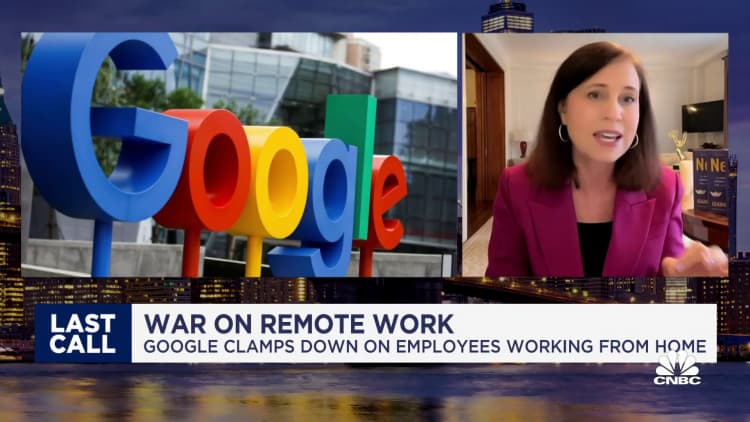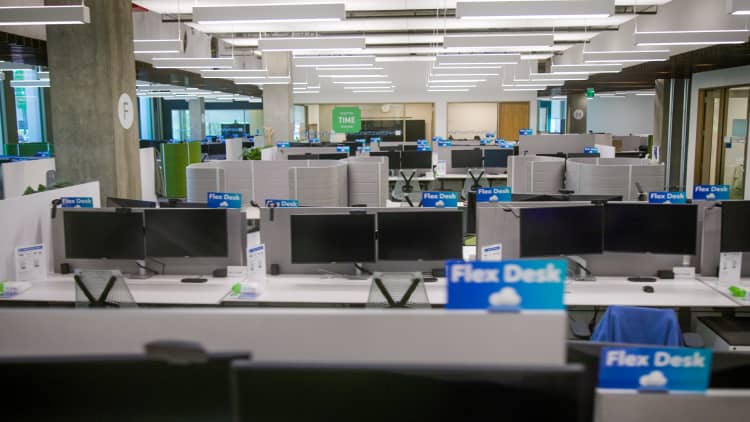When the IT firm she was working for requested staff to return to the workplace “a minimum of thrice” every week in April, Samantha was dismayed.
“The explanation was primarily for collaboration, however many staff weren’t satisfied,” mentioned the 30-year-old Singaporean.
“Particularly as we’re speculated to be a data-driven firm, however the firm gave no knowledge that return-to-office is best than work-from-home.”
She added that the corporate’s earlier stance was that groups would meet in particular person as soon as every week and staff can resolve which different days they need to return to the workplace.

The scaling again of distant working grew to become a significant push issue for Samantha to give up that job for one more that supplied flexibility.
“I believe 9-to-6 [in an office] is outdated and staff needs to be empowered to make good judgments and work at their very own time, so long as they get their work finished,” she added.
In accordance with new knowledge from employment web site Certainly, employers’ angle towards distant work are at odds with the preferences of jobseekers in Singapore.
Whereas working professionals stay “keenly ” in distant work, employers had been far much less more likely to point out “do business from home” in postings, the job portal advised CNBC Make It.
In Might 2023, 6.6% of job postings explicitly talked about phrases comparable to “do business from home” or “distant work” of their job descriptions.
That continues to be nicely beneath the degrees noticed in 2021, which peaked at virtually 12% in December.
It will be fascinating to see whether or not this obvious disconnect between employers and jobseekers hampers the flexibility of some employers to draw appropriate candidates going ahead.
Callam Pickering
APAC senior economist, Certainly
Against this, jobseeker curiosity in distant work “stays elevated” with 3.5% of searches, Certainly added. Phrases comparable to “full-time,” “distant work” and related phrases are additionally persistently amongst Singapore’s hottest search phrases.
“Jobseekers proceed to worth the pliability supplied by distant work,” mentioned Callam Pickering, Asia-Pacific senior economist at Certainly.
“It will be fascinating to see whether or not this obvious disconnect between employers and jobseekers hampers the flexibility of some employers to draw appropriate candidates going ahead.”

In accordance with LinkedIn’s Global Talent Trends report, seven out of 10 leaders in APAC consider their firms will likely be “pressured to wind again progress” on versatile working.
“In the present day’s financial local weather is inflicting some [companies] to tug again on the pliability and studying and improvement initiatives launched in the course of the pandemic,” mentioned Man Berger, LinkedIn’s principal economist.
For Samantha, a job with flexibility does not need to be “completely distant,” but it surely ought to give staff the selection to resolve after they need to be within the workplace.
“It does not need to be absolutely distant but it surely’s good to know your employer trusts you, which in flip makes you happier and extra prepared to go above and past for the corporate,” she added.
Job postings in decline
Singapore job postings on the portal are on a decline, with numbers hitting lowest ranges since September 2021.
Certainly mentioned job postings in Might 2023 had been 16.5% decrease than a 12 months in the past — marking the seventh consecutive month-to-month decline.
Certainly knowledge confirmed there’s been “current weak point” concentrated within the health-care sector. Postings for pharmacy and dental roles for instance, decreased by 38% and 33% respectively over the previous three months.
We anticipate that job postings will proceed to reasonable over the rest of the 12 months, in step with the slowdown in financial circumstances.
Callam Pickering
APAC senior economist, Certainly

